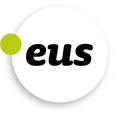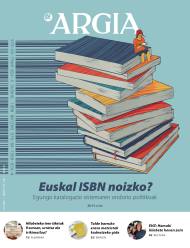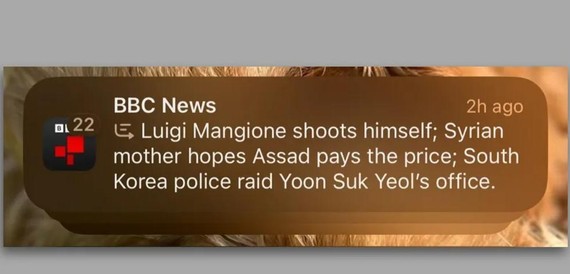Matrix: free and decentralized instant messaging
- One of the biggest problems the Internet currently has is that almost everything is centralized in a few giant companies. I have talked about it many times, both in the Digital World section of Elhuyar magazine and in this digital publication Sarean.eus.

I made an introduction to the problem of this centralization and the need for decentralization in the article in which I explained my principles of digital militancy and analyzed it in more detail in another dedicated to decentralization. Well, today I want to delve into the issue of decentralization, but with the issue of communication tools and, more specifically, instant messaging, and present the Matrix tool, an example of it.
Centralization of communication tools It is clear that in recent years there has
been a huge centralization in communications over the Internet, that is, we have started to do it through a few providers, with all the problems that this entails: dependence, control, accumulation of wealth… We have become accustomed and it seems that it cannot be otherwise, but it is very wrong what you think: it doesn’t have to be like this, it was not so until recently.
Digital communication has not been centralized since its inception and almost until yesterday. Communication protocols were standard, there were many different providers and it was possible to communicate with one account or another. Examples are mobile phone, SMS or email. Euskaltel customers can call Movistar or Gmail to Hotmail.
But as we know, in recent years the use of these tools has been decreasing and has replaced instant messaging. And instant messaging tools are centralized. Each tool or service uses its own protocol that only serves to communicate with the clients of the same service. And because the goal is to be able to communicate with as many people as possible, eventually one of the services is gaining in monopoly, achieving that dependence, control and wealth. A clear example is Whatsapp. Imagine that all communications from people around the world (or at least from so-called Western countries and many others) are in the hands of that company!
There are many people who realize the power that Whatsapp has and also the company behind it is Facebook, looking for alternatives. Many switched to Telegram because at least it is not an American company and the app is free software. Others to Signal for its enhanced privacy protection. But they all have the same problem: they are centralized services, all communications go through their servers and only serve to communicate among users of the same company. If in the end any of them managed to leave Whatsapp and succeed in the market, we would have the same problem with the new one.
Decentralised alternative: Matrix
Fortunately there are decentralized options for instant messaging. The best-known and most successful (I understand success in relative terms, which is still very minority), is probably Matrix. The Matrix is a project driven by the nonprofit Foundation Matrix.org, as they say on their web. They define an open standard protocol for the development of secure and decentralized real-time communications (with client server and server communications) and develop programs and SDK in free software for the implementation of both servers and clients. Matrix allows both messaging and end-to-end audio or video calls.
Great, right? And how can I start using Matrix? Like all instant messaging services, you have to install an app on your phone, but unlike others, there is no single official app. As it is an open protocol, there is a large number of client software (as you can see in the list, in addition to mobile phone apps, it can also be used through programs installed on the computer or on some websites), being the best known Element.
If you have ever used Whatsapp, Telegram, Signal or Discord, you already know that once installed you only have to indicate the phone number to start using it. That will be the ID of your account and through it you will find yourself. In Matrix you have to take two steps. First you must select the server or node that will be your provider. As we have already said, Matrix is a decentralized protocol in which there are many servers or nodes to offer the service. We can open an account in any of them and communicate with all users of that node or any other. We will then have to select the name of our account (one that has no one on this server). The name or identifier of our Matrix network account shall be the selected name and domain of the provider, similar to an e-mail account.
And what nodes or servers are there to choose from? The largest node Matrix.org is maintained by the foundation itself, and the reason it is so large is because most customers Element and others offer it by default, but there is much more and it should be distributed among others for the sake of decentralization. Moreover, because the protocol is open, there is a lot of server software in free software and anyone can assemble new nodes, for example Matrix.org, the Synapse software maintained by the organization itself is very easy to install. It is foreseeable (and hopefully so) that many more nodes, smaller, local, private… As before with e-mail, companies and associations should launch the Matrix nodes and hold their employees and partners accountable. Administrations at different levels are the same for their citizens. Or, why not, in groups or families of friends. I myself have a Matrix server on my own domain; family members have an account and we use it to communicate with each other, being able to use at the same time any other Matrix user in the world.
Everything looks like benefits and good things. But there's a problem, which is big and not by itself the fault of the Matrix, which has very few users. When I said that the family's Matrix server serves not only to make us with each other, but to communicate with any Matrix user in the world, all those people are very little. In my case, the only contact I have over my family is a friend who convinced Matrix to open an account, and I follow three groups that are in Matrix (Librezale, also in Education Librezale and Free Software Dudak). A tool that serves to communicate with people loses almost all its meaning if almost nobody uses it and we can only communicate with very few people. Gradually you have to get users to become more practical and get a critical amount to break the crazy wheel. To see…
Before ending, two
Matrix listings are not the only decentralized, instant messaging protocol or service if there is more. The XMPP, for example, is prior to Matrix; formerly it was used quite in the linux world (called Jabber, used the Pidgin client program), but now it seems to be left behind. In any case, I have no special reason to choose Matrix instead of XMPP and the choice is not based on deep knowledge. When I was going to install an instant messaging server on my own server, a friend commented to me and also found it easier to install than the XMPP. Now, in writing the article, I've chosen Matrix because I know it better and because, as I say, I have a more widespread impression, not another one.
Lately I'm reading stuff against Matrix: That Matrix.org is sent information, that the links between the founders and Israel, that does not keep enough privacy... I am very weird of those who say, because everything is in free software and you can see what it does, and because some free reference projects continue to use. They have a conspiracy shape or attempts to misinform rival projects. But I have to admit that I haven't done much research on this. However, I moved on with the article. If someone has more information about the opposite arguments, he tells them in the answers and, at least, serves the article to arouse the debate, to know more about each other and to make known whether those bad things are real.
Life surrounds everything, it is limited and fragile. To live good lives, it seems to me that the body knows what to do, while the mind, although it knows (when it is well informed), often sees the body deliberately silence. In this silence the mind opens itself to relations... [+]
The consumerist culture we live in sends every user to an unreasonable enjoyment. As Slavoj Zize says, Enjoy your fetish, it has become the rude mandate of hypermodernity. Current enjoyment is carried out through existing technological devices to occupy the place of fetish. But... [+]
In 2018, I leveraged social media and most communications from devices to try to control where I focus on life. Every day I go on that task, in the light of the moth, because my curiosity is constantly looking for fresh information to help me understand reality. At that time I... [+]
























